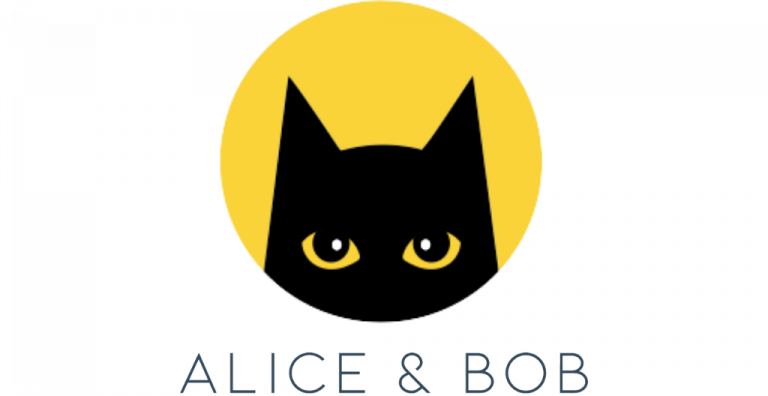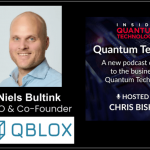Quantum News Briefs: November 29th, 2023: AWS Announces new chip to solve quantum computing problems; Alice & Bob selects OVHcloud to launch Felis; Q-CTRL Integrates Its Error Suppression Technology into IBM Quantum services; and MORE!
Quantum News Briefs: November 29, 2023:
AWS is experimenting with a chip that can solve crucial quantum computing problems

At the recent AWS re:Invent conference, Peter DeSantis, senior vice president of AWS Utility Computing, unveiled an advancement in quantum computing. He presented a new chip developed by the AWS Center for Quantum Computing, which marks a significant stride in overcoming one of the major challenges in the field. This chip encased in a golden disc, is specifically engineered to reduce ‘bit flip’ errors – a common issue in quantum computing that causes ‘noise’ and hinders efficiency. By integrating this chip with an additional ‘active’ error correction method, AWS has achieved a 6X reduction in quantum error correction. This innovation is not just a technical achievement but a crucial step towards making quantum computing practical for solving complex, real-world problems, as emphasized by DeSantis in his keynote.
Alice & Bob selects OVHcloud to launch Felis, the first quantum emulator predicting the behavior of logical qubits

Alice & Bob, a prominent player in developing fault-tolerant quantum computers, has partnered with leading cloud computing firm OVHcloud to make its quantum emulator, Felis, publicly available on the OVHcloud Public Cloud. This groundbreaking emulator is the first to predict the behavior of logical qubits with adjustable error rates and simplifies quantum algorithm testing by abstracting error correction. Miroslaw Klaba, R&D Director at OVHcloud, emphasized the importance of Felis in the burgeoning French quantum industry and its role in hastening the development of industrially relevant quantum applications. Felis primarily focuses on creating logical qubits from physical ‘cat’ qubits and the possibilities with high-quality logical qubits. It aids researchers in enhancing hardware by exploring quantum error correction techniques and application development by abstracting complexities to facilitate algorithm design. Théau Peronnin, CEO of Alice & Bob, highlighted the emulator’s significance in overcoming quantum computing’s error challenges and advancing toward fault tolerance. Felis’s ability to tune hardware parameters and its efficiency in reducing the number of physical qubits needed for error-free logical qubits sets it apart. Alice & Bob’s business strategy division, The Box, will use Felis for resource estimation and providing timelines for industrial quantum applications. OVHcloud plans to expand access to real quantum hardware, including Alice & Bob’s, by 2024 as part of its commitment to democratize quantum computing and enhance quantum education.
Q-CTRL Integrates Its Error Suppression Technology into IBM Quantum services

Q-CTRL, a leader in quantum control infrastructure software, announced the integration of its Q-CTRL Embedded software with IBM Quantum’s Pay-As-You-Go Plan, marking the first instance of a third-party independent software vendor’s technology being offered in the plan. This integration aims to enhance quantum computing utility and performance by addressing the primary challenge of unreliable results from current hardware algorithms. The combination of Q-CTRL’s technology and IBM Quantum services simplifies achieving useful results by automatically tackling noise and hardware errors, thus reducing the expertise required in areas like algorithms, compilers, and error mitigation. Q-CTRL’s software, known for improving computational accuracy and efficiency, will now be accessible to IBM Quantum Pay-As-You-Go Plan users at no additional cost. The integration has demonstrated significant improvements, including a 10X increase in quantum algorithm complexity, a 100X cost reduction in error-reduction strategies, and over a 1000X improvement in the success of quantum algorithms. This collaboration, supported by positive feedback from alpha-test customers, including large industrial partners and quantum technology startups, is a crucial step towards achieving quantum advantage and enabling users, from researchers to enterprises, to utilize their quantum applications fully.
Oxford Quantum Circuits raises $100M for quantum compute-as-a-service

Oxford Quantum Circuits (OQC), a leading quantum compute-as-a-service (QCaaS) company, has announced a significant financial milestone with Japanese VC fund SBI Investment, Japan’s top venture capital firm, leading OQC’s $100 million Series B funding round. This investment, revealed at the Global Investment Summit, marks the UK’s largest-ever Series B in quantum computing. It will bolster OQC’s industry-leading R&D efforts, furthering its ability to deliver advanced quantum platforms with hundreds of qubits to global businesses. Before this, OQC had raised £41 million, including the UK’s largest quantum Series A. The funding round includes contributions from Oxford Science Enterprises (OSE), University of Tokyo Edge Capital (UTEC), Lansdowne Partners, and OTIF, managed by Oxford Investment Consultants (OIC). Additionally, OQC announced the public availability of OQC Toshiko, the world’s first enterprise-ready quantum computing platform. OQC Toshiko, a 32-qubit platform, is aimed at sectors handling sensitive data, like financial services and defense, integrating quantum computing into data centers for hybrid computing solutions. Ilana Wisby, CEO of OQC, emphasized the platform’s role in addressing global challenges, while Yoshitaka Kitao of SBI Holdings highlighted quantum computing’s transformative potential, particularly in financial services and other industries.
IonQ Named to Fast Company’s Third Annual List of the Next Big Things in Tech
IonQ, a leader in quantum computing, has been recognized on Fast Company‘s Next Big Things in Tech list for its significant contributions and promising future in the tech industry. This marks the company’s first appearance on the list, highlighting its impact and potential across various sectors like healthcare, security, AI, and data. IonQ’s President and CEO, Peter Chapman, sees this as a testament to their technology’s transformative nature and their commitment to advancing quantum computing for solving complex business challenges. The company’s growth is evident through collaborations with major corporations such as Hyundai, Airbus, and GE Research and a significant $25.5M project with the US Air Force Research Lab. This recognition follows their recent inclusion in Deloitte’s list of fastest-growing tech companies in North America for 2023 and the announcement of achieving 29 algorithmic qubits on a barium-based quantum computer. IonQ continues to innovate with upcoming enterprise-ready quantum systems, IonQ Forte Enterprise and IonQ Tempo, further cementing its position as a quantum computing frontrunner.

























